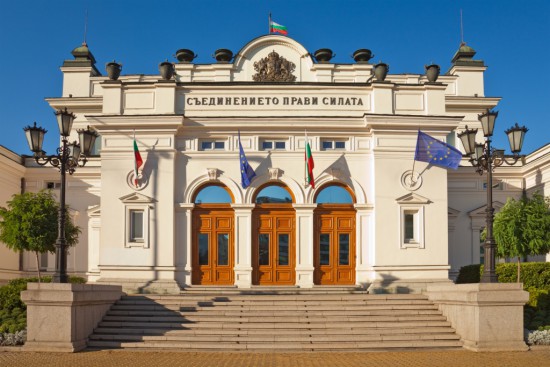Bulgarian Parliament autumn sitting opens with promises on anti-corruption
Bulgaria’s National Assembly opened its autumn sitting on September 1, after a month-long summer recess, with politicians dwelling on promises of new anti-corruption legislation and the country’s forthcoming 2018 presidency of the European Union.
Prime Minister Boiko Borissov’s centre-right GERB party and the opposition Bulgarian Socialist Party both are putting forward rival versions of anti-corruption laws.
GERB parliamentary leader Tsvetan Tsvetanov said that there were widespread public expectations for good anti-corruption legislation. This new anti-corruption law should be approved by the end of 2017, which would be a very important sign to society, he said.
“The new anti-corruption law will bring together the existing fragmented legal acts and it will be followed by the creation of a unified anti-corruption body based on the commission for the seizure of illegally acquired property, thus improving the interaction between the institutions and the actions of corruption,” Tsvetanov said.
“We will move towards a fairer, faster and more efficient justice system: Various elements of the legal system will be improved, the recommendations made in the Cooperation and Verification Mechanism report will be implemented and criminal policy should be updated by adopting a new Penal Code,” he said.
Towards the end of 2018 functioning e-government should be in place, Tsvetanov said.
GERB’s legislative priorities would include strengthening public order and security and steps would be taken to prevent foreigners staying in the country illegally, he said, referring to pledges to act against illegal migration.
Bulgarian Socialist Party leader Kornelia Ninova said that her party would use the new political season to work to reduce poverty and to fight corruption.
Over the years, various governments had initiated reforms to improve living standards, but these problems remained unresolved, Ninova said.
“We have poor retirees, poor young families, nearly two million Bulgarians live on the verge of poverty,” she said.
Volen Siderov, parliamentary group leader of the United Patriots, the cluster of far-right and ultra-nationalist parties that is the minority partner in Borissov’s current coalition government, said that during Bulgaria’s EU Presidency, said that during the Presidency, it would become clear to Europe that the United Patriots “are not irresponsible or those seeking conflicts and scandals but people who can work for the good of their country and can put pressure on Bulgaria to take more sovereign decisions”.
“For the first time in 30 years of transition, patriotic and nationalist parties are in the executive branch and are proving that they are responsible politicians,” Siderov said.
He thanked GERB for addressing all of their proposals. “We were the ones who insisted on completing the facility that stops migrants and thus calm Bulgarian society,” he said.
Mustafa Karadaya, leader of the Movement for Rights and Freedoms, told Parliament: “Instead of managing the country through working institutions and administration, we are witnessing activities typical of an amateur club. This is not how a state is governed.”
Of the government’s programme, he said: “What did this program present to us – a lack of a clear vision for future development, a set of rather wishful declarations and measures that not only do not guarantee the achievement of good goals but reveal the inability of the government to achieve economic growth, social responsibility and a European quality of life”.
MP Plamen Hristov, in a declaration on behalf of the smallest group in Bulgaria’s National Assembly, Vesselin Mareshki’s Volya, said that his party was the only one that had never been in government.
“That is why our view of the problems is independent and objective and it is good to listen to us a little more often.
“No one wants to listen to empty parliamentary talk and promises about an unclear future,” he said.
Volya called on everyone to leave aside their party egos, to work as a priority for a high standard of living for people, to support small and medium business, and to work for more investment, especially in the lagging regions of the country. A long time had been wasted on endless political party battles, Hristov said.
4 September 2017
Disclaimer: All views, opinions and accounts included in the RAI News Section are those of the authors; their inclusion does not imply official endorsement or acceptance by RAI. The News Section reflects the selection of topics of informative value to the organization and its stakeholders. Its content is taken from press/media sources and does not in any way reflect official RAI Secretariat policy. RAI Secretariat is not responsible for possible inaccuracies in media reports.

